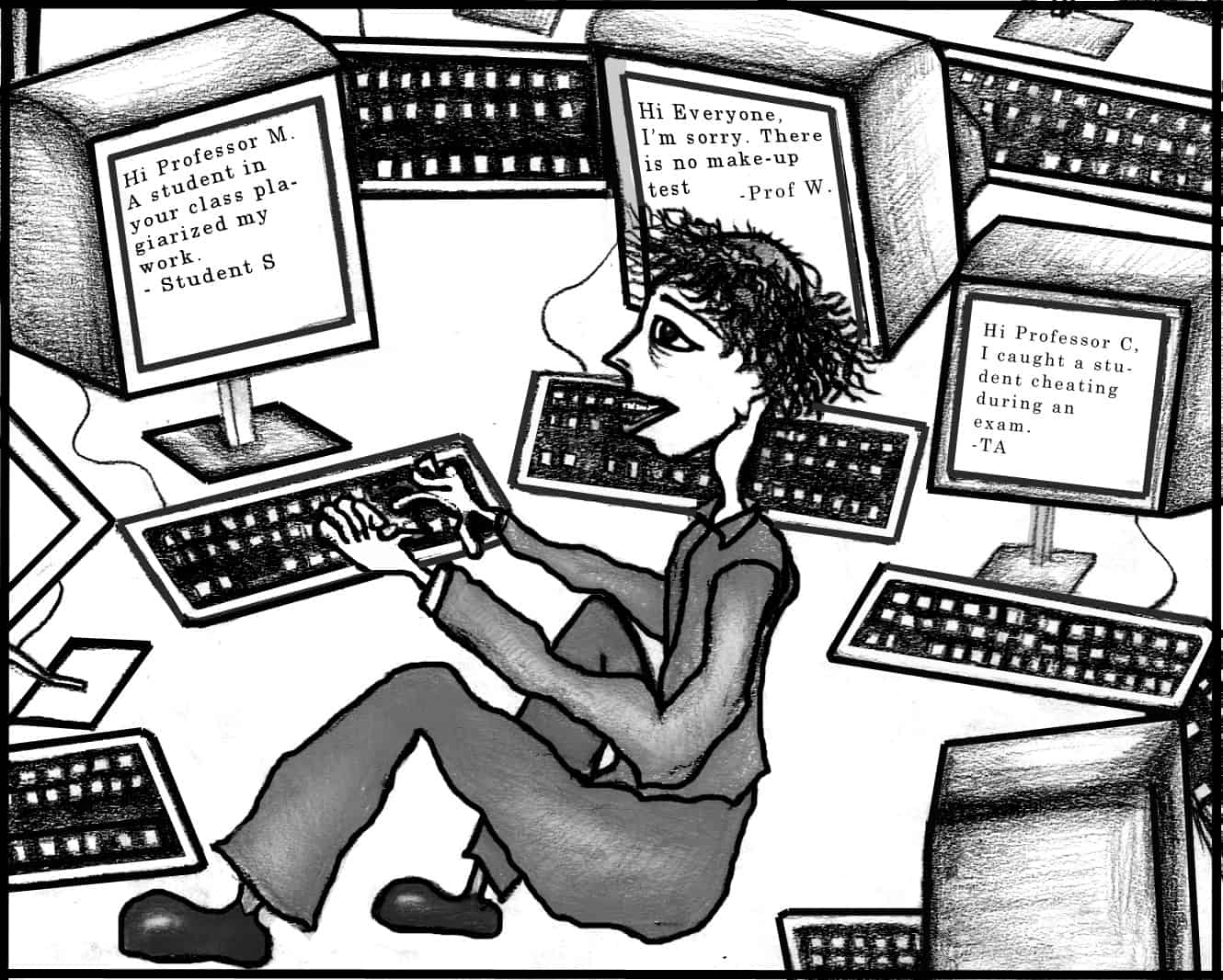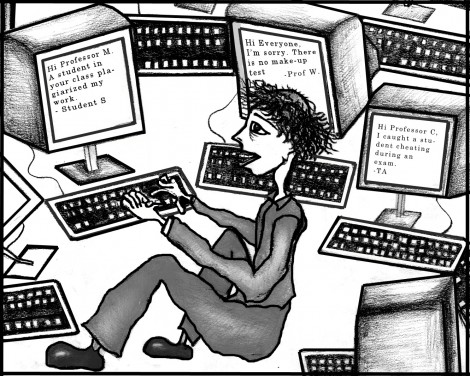Students and faculty are calling U of T’s recent copyright agreement a step back from academic freedom.
After two months of negotiation, U of T and the University of Western Ontario (UWO) each reached an agreement on January 30 with Access Copyright, a non-profit licensing agency that represents copyright holders. The new deal increased royalties and has critics concerned that hyperlinking has been redefined as copying.
It eliminated the current $0.10 per page cost for course packs while increasing the annual royalty from $3.38 per full-time equivalent (FTE) student to $27.50 to cover the digital use of copyrighted materials.
In a previous agreement, Access Copyright originally proposed a $45 tariff before the Copyright Board, a federal regulator that supervises the agreement between users and licensing agencies.
The new agreement also revised the definition of “copy” to include digital copying of copyrighted work and sending an email containing such copies, among others. Also included within these parameters are displaying digital copies on a computer and projecting digital images using a computer.
On February 16, the UTSU, GSU, and the university’s faculty association issued a joint letter to the Governing Council stating their concerns over the “cost, process, content, scope, and timing” of the agreement.
Representatives of the three organizations said the agreement was signed without proper community-wide consultation and rushed through the governing process. It was presented to the Business Board as “for informational purpose only” the same day it was signed.
“It is troubling to see that this important academic decision … is deeply couched within the minutes of the Business Board and only addressed as an issue of a mandatory ancillary fee increase,” the representatives wrote.
They pointed out that certain clauses in the agreement might permit surveillance of students’ and faculty’s email accounts to monitor the transmission of digital copies of copyrighted work.
The letter also suggested that U of T and UWO’s decision hinders the collective effort by sister institutions to demand fair dealing and open access.
However, UWO said in a memo that the agreement included a clause allowing them and Access Copyright to “agree to disagree” with what constitutes as copying.
“We were adamant that we could not agree that hyperlinking constituted copying under the Copyright Act,” wrote the university.
They said that because the new payment system is based on a flat fee model instead of a per page model, “the definition of copy has little, if any, practical effect on the operation of the agreement, since there is no need to agree on what constitutes a copy in order to calculate royalties.”
U of T’s vice-provost, students Jill Matus said that the agreement signed by U of T is identical to the one signed by Western.
“Both universities were careful to ensure that the license did not commit them to a view that hyperlinking is copying,” she said.
The deal also contains indemnity provisions that promise to increase the university’s legal protection against copyright infringement.
“[U of T] views the new license as providing a fair and efficient balance between the rights of copyright users and the rights of creators,” Matus wrote in a memo to student governments and societies.
She added that content creators have demanded to be fairly compensated for digital use of their work as it becomes increasingly common on campus.
As of September, about 25 post-secondary institutions have opted out of Access Copyright in a dispute over the sharp $45 tariff hike. U of T was part of the sector-wide challenge until recently.
“The larger problem with the legal challenge was that the interests of the various institutions were far from aligned,” wrote Matus in the memo. “Putting these groups together in a single legal settlement is far from straightforward.”
Matus also said opting out is not an effective option for U of T, citing the hidden administrative cost of dealing with content creators individually and copyright infringement.
The agreement will renew automatically for one year and will be in place until December 2013 during which time any party can cancel or renegotiate after a six months notice.



